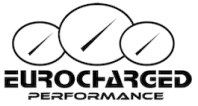Results 1 to 8 of 8
Thread: Is this for real?
Threaded View
-
03-05-2013, 12:49 PM #1
Is this for real?
I found this article today.
Now ever since I been driving BMW's I have never been to a tire shop that would give me a set of tires that is solely made for just BMW's, I mean they ask what I drive and everything, but I don't think that they would give me the specially marked tire and install it, they just give me what is at the warehouse at that time.
Read article below:
Sidewall secrets
Do you know the secret information written on your tire’s sidewall?
To most consumers, the information written on the tire sidewall might as well be written in a foreign language. Besides the brand of tire, the name (or model) of the tire, and the size of the tire, everything else looks like a bunch of gibberish.
But to tire industry insiders, there’s a wealth of information on that sidewall. The tire insider knows what all that gibberish means, and unless the tire shop you’re getting your tires from can decipher all that “gibberish,” they might be selling you the wrong tires for you vehicle.

For instance, let’s say two consumers walk into a tire shop and they both ask for Pirelli P7 tires. One owns a BMW and the other owns a Mercedes-Benz. Although both will get tires that looks exactly the same, with the same tread pattern and the same name on the sidewall, in actual fact, the tires will be different.
They’re made with different compounds, because they’re tailored to the needs of each automotive manufacturer – in this case BMW and Mercedes-Benz.
How can anyone tell them apart? The tires have logos, or a specific series of letters, on the sidewall that only a good tire retailer will notice and will understand.
The tire designed for BMW, for example, has a star on the sidewall. A simple logo that most of us never pay attention to, but something that sets that tire apart form the pack as having been designed specifically for BMW.
So what’s the big deal if your vehicle is riding on tires it wasn’t designed to ride on? For starters, you won’t benefit 100% from the handling and performance the manufacturer engineered into your vehicle.
More: Truck tire testing
If you’re driving a high-end sports sedan, for example, you paid a premium for it and you probably want that vehicle to live up to performance expectations. But if it’s riding on the wrong tires, you won’t get all the performance you paid for.
The second issue is one of safety. Tires made with different compounds expand and contract at different rates. So you may be on a road trip with your family, and after a few kilometres you may notice the car pulling slightly to one side. Why? The tires are heating up and expanding, but one of the tires is different. It’s got the same name on the sidewall, but the logo tells you it’s the odd man out, made with different compounds or materials.
Not only will you have to keep pulling the vehicle back into the lane, but if you’re faced with the need for an emergency evasive manoeuvre, your vehicle will not respond as well as it could, were all the tires the same.









 Quote
Quote









Welcome...
NOOOOB: Rick1234